Key points
Did you know that exercising can help to improve your sleep? In fact, good sleep and regular exercise are key parts of a healthy lifestyle, yet many of us don’t get enough of either.
In this article we’re going to explore the relationship between sleep and exercise in detail and we’ll cover:
- does exercise help you sleep?
- what’s the best type of exercise to help you sleep?
- how your sleep can influence your exercise routine
- is there a best time to exercise before sleep?
- how regular exercise and good sleep can improve your overall wellbeing.
Coaches aren’t just for sport
With our sleep improvement therapy you receive personalised support from your team of sleep coaches, who’ll be by your side to offer help, advice and guidance at every step on your journey back to good sleep.
Sleep and exercise are two important elements of a healthy lifestyle
Are you getting enough exercise in your daily life? Even though it’s well-known that exercise is a key part of a healthy lifestyle, daily exercise can be something many of us just don’t prioritise.
Regular physical activity helps keep your brain sharp and your body healthy. It can boost your mood, lower levels of anxiety and depression, help keep your weight in check and reduce your risk of developing many diseases.1
Similarly, all the same benefits apply to getting regular, good quality sleep. While exercising and sleeping are clearly two very opposite types of activities, they actually share important features:
- they’re both key to maintaining your physical and mental wellbeing
- taking steps to improve them can improve your overall health
- we often overlook their importance in our daily lives.
When it comes to sleep, many of us aren’t getting the amount or quality of sleep we need to function at our best during the day.
It’s a similar story when it comes to exercise too.
The World Health Organization (WHO) recommend that you limit the amount of time you spend being still, citing:
Replacing sedentary time with physical activity of any intensity (including light intensity) provides health benefits.2
But even though sleep and exercise are both important for our health, plenty of us are lacking in at least one or the other.
We’re going to look at how adding even a tiny bit of exercise into your day may help to boost your sleep and how good sleep can in turn improve your physical wellbeing. We’ll start with how exercise can have a positive impact on your sleep.
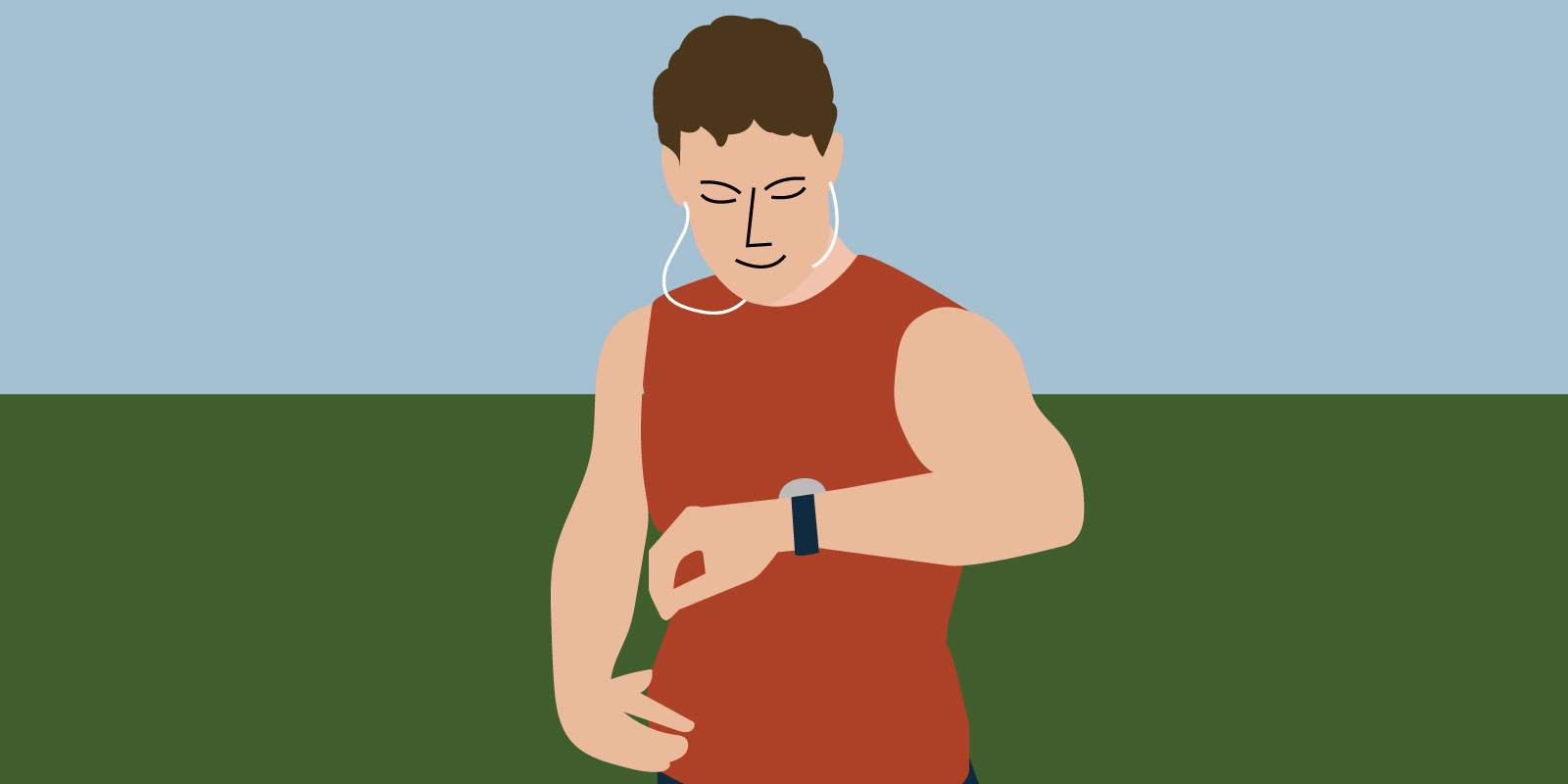
How does exercise improve sleep?
Exercising regularly can help you to sleep soundly, fall asleep quickly and increase the total amount of sleep you’re getting.3 4
How does it do this?
While it’s not completely understood how physical activity improves sleep, some ways in which it may boost sleep, either directly or indirectly, can be explained by the fact that exercise:
- relieves stress and anxiety
- may build sleep pressure, helping you to feel sleepy by bedtime
- alters your body temperature
- can help regulate your sleep/wake cycle.5
So let’s have a look at these four areas in a little more detail.
Exercise can reduce stress and anxiety
Exercise can help to give you a break from your worries.6 While you’re exercising, your focus is on what you’re doing. This could be your swimming stroke, your running pace, what your teammates are doing… Your attention is on your activity, not your worries. But how does this relate to your sleep?
If you’re experiencing problems with your mental health, your sleep can be affected, making it harder to fall asleep and stay asleep. And it also works in reverse: poor sleep can make symptoms of mental health problems feel more intense.
But your sleep and mental health can also positively impact one another too. Good sleep can improve your mental health and taking care of your mental health can help you to sleep better.
As exercising can reduce feelings of stress, anxiety and depression, the reduction in these feelings can make it easier for you to fall asleep and stay asleep at night.7 8 9
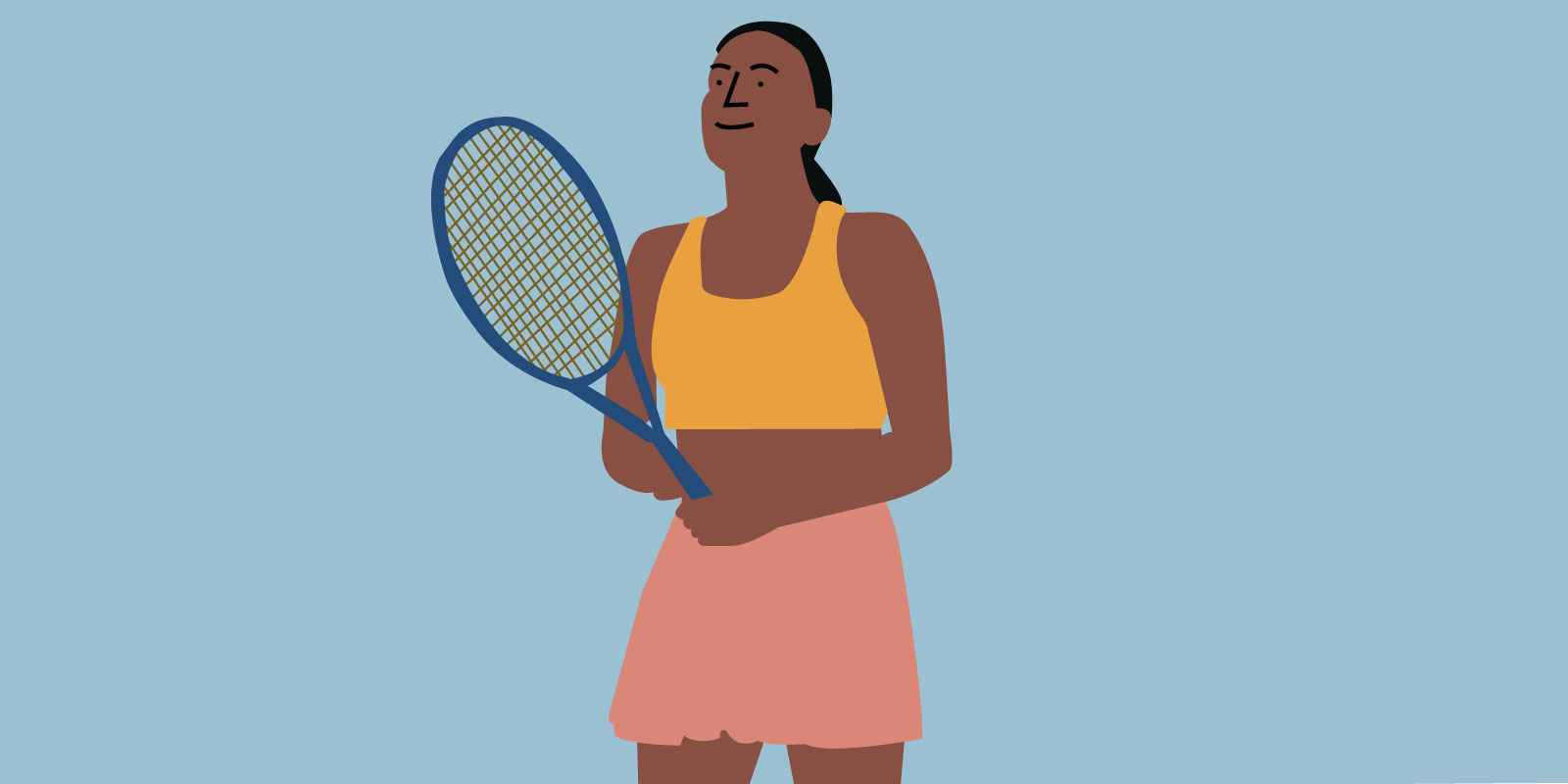
Exercise can tire your body out
Whether you’ve spent a long day at work on your feet or you’ve enjoyed an intense cardio session, physical activity helps you to feel tired by bedtime.
However just being physically exhausted doesn’t mean that you’ll fall asleep. To fall asleep, you also need to feel sleepy and this is actually different to just being tired. To feel sleepy, you need to have a quiet mind as well as being physically tired, but the exercise you’ve done may partly help you to reach this sleepy state.
Exercise can help regulate your circadian rhythms
You’ve probably heard of circadian rhythms, they’re natural processes in your body that run in cycles of around 24 hours. One of the most well-known circadian rhythms is your sleep/wake cycle.
This is the cycle of you being awake during the daylight hours and asleep during the hours of darkness. Regular exercise has been shown to help regulate circadian rhythms, in particular your sleep/wake cycle.10 11 12
Combining your regular exercise with being outdoors, even if the day’s overcast or dim, can help to regulate your sleep/wake cycle. Studies show that exercising outdoors helps to align your circadian rhythm with the day’s natural light/dark cycle and can also help you to sleep better.13 14
Getting outside in natural light can improve how alert you feel, boost your mood and help you to sleep well at night.15 16 So why not consider enjoying a morning jog or a lunchtime stroll and making the most of all the benefits natural daylight can bring at the same time as raising your heart rate?
Exercise affects your body temperature. Whether you’re aware of it or not, your body loves routine. The human body thrives on following a similar schedule each day as this helps to regulate rhythms in the body.
Your core body temperature follows a predictable rhythm every day. It rises during the day and decreases throughout the night. So a rise in body temperature is a signal to your body that it’s time to be awake.
Exercise increases your body temperature. So, just like exposure to light, it can help correctly align your circadian rhythm.
So hopefully it’s now clear that exercise can have multiple benefits when it comes to your sleep. But what exercise is best for sleep? Exercise comes in many different forms, so let’s look next at how different exercises affect sleep and whether one type can help you sleep better than the rest.

Is there a best type of exercise for sleep?
Doing exercise likely means different things to each of us and we’ll all have our preferred ways to be physically active. For one person it might mean hitting the gym hard, for another it could be taking the dog for a leisurely stroll. Both are valid forms of exercise.
As we said earlier, the WHO guidelines recommend limiting the amount of time you spend still and increase the amount of activity you do.
But what does this mean exactly?
According to the NHS, moderate intensity aerobic physical activity can include:
- brisk walking
- riding a bike
- dancing
- pushing a lawn mover
- rollerblading
- water aerobics.17
Increasing your level of activity is clearly important for your overall health. But if you’re looking for a way to get active that will help your sleep, what’s the best kind of exercise to choose?
It’s hard to say! While there’s plenty of studies looking at how different exercise types can improve sleep, there’s actually very few that directly compare whether one type of exercise is better than another when it comes to your sleep.
But researchers have compared the results from many different studies on sleep and exercise with each other. Results suggest that all exercise can have a positive effect on sleep, even low-intensity activities such as housework or doing repetitions of going from sitting to standing.18
So it seems that as long as your body is exerting itself, whatever physical activity you choose has the potential to improve your sleep.
Exercise can mean many things. When you think of exercising, you probably picture running on a treadmill, jogging, riding an exercise bike, cycling or going for a long walk. But anything that moderately increases your heart rate can be viewed as exercise, so don’t worry if you’re not a regular gym bunny. As long as you’re increasing your heart rate, even simple daytime activities like hoovering, dusting and ironing can count.
We’ve all got our own personal fitness levels and preferences for what type of exercise we enjoy, the key is to make sure to include some form of regular exercise in your daily life.
So when in your daily life should you exercise?
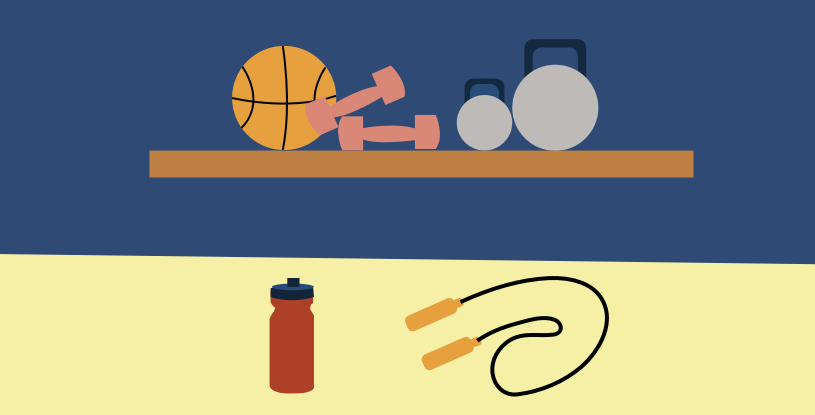
Should you avoid exercising close to bedtime?
For many of us, the evening offers the perfect opportunity to get some post-work exercise in, but can this affect your sleep?
The answer seems to be that as long as you allow your heart rate and body temperature to return to normal after you exercise, then your sleep shouldn’t be negatively affected.
Some people may find that exercising close to bedtime can leave them too alert, making it hard to fall asleep. This may be in part down to the release of noradrenaline and cortisol, both of which are involved in the control of wakefulness, when you exercise.19
One study compared whether the timing of moderate to vigorous exercise had any effect on sleep. The researchers looked at exercise performed during three time frames:
- more than eight hours before bed
- between three and eight hours before bed
- less than three hours before bed.
They found no difference in how long it took people to get to sleep, how long they slept for or the quality of their sleep.20
So, there’s no clear-cut answer here. Just as there’s no one-size-fits-all exercise for every level of fitness and interest, the best time for you to exercise will be largely down to personal preference. That said, it should be noted that exercising at the wrong time for your chronotype has been linked to an increased risk of cardiovascular mortality.21 So if you’re a morning person, it could be more beneficial for you to exercise in the morning, rather than at night.
Generally, it’s fine to exercise in the evening. Although one review found that exercising less than an hour before bed might increase how long it takes to fall asleep, total sleep time and sleep quality.22
If you enjoy evening exercise and you’re sleeping well, that’s great. If you find you can’t sleep after exercising then maybe try moving your workout to slightly earlier or reduce the intensity of your routine in the evening and see if you sleep any better.
The key is to make sure your heart rate, body temperature and blood pressure have returned to baseline before going to sleep. With that in mind, it’s still best to leave an hour or so before you go to bed for relaxing activities that allow you to wind down and prepare your mind and body for sleep.
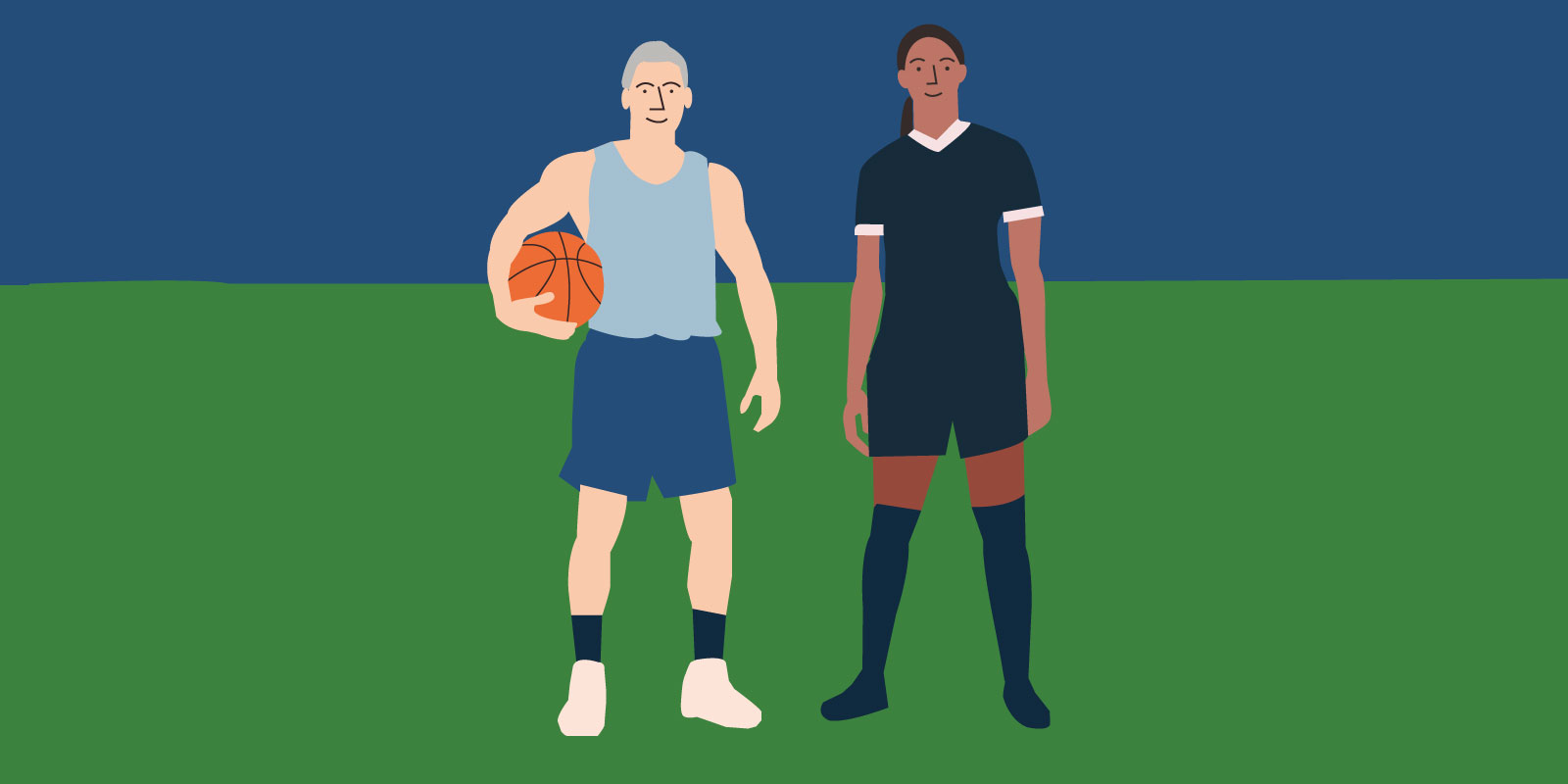
Can exercise help if you have a sleep disorder?
It’s clear that regular exercise can be beneficial for your sleep, but can it help if you’re not sleeping well already? The answer appears to be yes!
Exercise can improve both the quantity and the quality of sleep in people with a range of different sleep disorders such as:
There’s a lot of data showing that exercise can improve symptoms of insomnia and obstructive sleep apnea (OSA) and a little less available on restless legs syndrome, but overall results indicate that exercise may provide a drug-free and useful way to help manage some of the symptoms of sleep disorders.
Exercise and insomnia
If you’re experiencing insomnia, increasing your time spent exercising is probably not high up on your to-do list. When you’re sleeping badly night after night, your daytime energy levels can be low, so adding in some exercise might feel like an impossible task.
But many studies have looked at the impact of exercise on insomnia and they’ve shown that regular exercise can in fact improve insomnia symptoms and have positive effects on the sleep of people with insomnia.23 24 25
So if you’re experiencing insomnia and you don’t exercise regularly, now could be the time to make a small change to your daily routine and add in some light exercise.
Exercise and sleep apnea
If you’ve been diagnosed with obstructive sleep apnea (OSA) then you’ll have likely already been advised that exercise may help with your symptoms. There’s plenty of science to back this up too. Multiple studies have shown that exercise can improve symptoms of OSA.26 27
People with OSA often experience daytime sleepiness because of their poor nighttime sleep. Studies have shown that physical exercise can improve daytime sleepiness in people with sleep apnea.
OSA is often seen in people who are overweight, so it might be presumed that exercise improves OSA symptoms by helping you to lose weight. But this doesn’t seem to necessarily be the case (though it could certainly help) as studies have shown that exercise can improve people’s apnea symptoms without significantly changing their weight.27
So if you’re living with OSA and you know that there’s room in your life to increase your level of activity, it may be worth considering.
Restless legs syndrome
Getting regular exercise during the daytime is one lifestyle change that’s recommended if you’re living with restless legs syndrome (RLS).
The studies available on RLS and exercise show encouraging results. Researchers have looked at the effects of aerobic exercise, yoga and exercises on RLS and found that all may be helpful in reducing symptoms.28 29 30
One study did find that exercising within the two hours before bedtime could worsen symptoms.31 So if you have RLS, you might want to be more mindful of when you decide to exercise as it could affect your sleep negatively if you leave it too late in the day.
So we’ve now fully covered how exercise can improve your sleep, whether you’ve got a sleep disorder or you just want to sleep better. To round things off, let’s have a little look at how sleep is important for your physical activity.
Sleep is key for your physical wellbeing
Picture the scene: you’ve spent a long and busy day on your feet, you come home and your muscles ache. You’re tired and all you want is to stretch out in bed and get a good night’s sleep. So you do just that.
What’s happening when you sleep that allows you to wake up refreshed and free from those aches and pains the next day?
Sleep allows your muscles time to recover and repair after exercise. And when you’re sleeping well, you’re more likely to have the energy and the motivation needed to exercise.
Just as exercise is important for good sleep, good sleep is key to your physical wellbeing. Improving one benefits the other. But where do you start if you want to improve both?! Sleepstation can help.
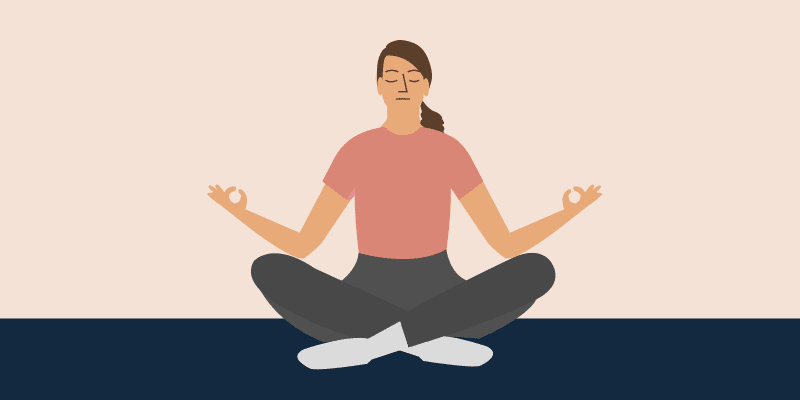
Sleepstation can help you sleep better and perform better
Including regular exercise in your routine is a part of good sleep hygiene.
Alongside cutting down on your alcohol and caffeine intake, avoiding screens before bedtime and enjoying a relaxing wind-down routine each night, each of these steps can help make getting to sleep and staying asleep that little bit easier. But sleep hygiene on its own isn’t enough to ensure good sleep.
And that’s where Sleepstation comes in. Our sleep improvement therapy is built on a foundation of Cognitive Behavioural Therapy for insomnia (CBTi) and combines scientifically-proven methods with one-to-one support.
We’ll take the time to learn all about you and your sleep problem and use this to design a personalised multi-step plan just for you. Just as a personal trainer would develop a plan to help you achieve your fitness goals, we’ll help you to do the same with your sleep.
The benefits of sleep therapy can extend far beyond just improving your sleep. With good sleep being key to your overall mental and physical health, taking steps to fix your sleep problem can also lead to improvements in your mood and wellbeing.
We’ve helped thousands of people just like you to regain control over their sleep and their stories show how improving your sleep can benefit many other aspects of your life.
So whether your poor sleep is holding you back from exercising or you just want your daytime energy back, we’re here to help. Take the first step today by telling us a little about your sleep and see how Sleepstation can help you.
Summary
- Moderate exercise has been shown to improve symptoms of insomnia and boost mood.
- It’s fine to exercise in the evening as long as you leave enough time for your heart rate and body temperature go back to normal before going to bed.
- Good sleep can have a positive effect on your physical wellbeing.
- Our digital sleep clinic can help you regain control over your sleep in just a few short weeks.
References
- Health matters: getting every adult active every day [Internet]. Gov.uk. [cited 2023 Jun 9]. Available here. ↩︎
- Physical activity [Internet]. Who.int. [cited 2023 Jun 8]. Available here. ↩︎
- Dolezal BA, Neufeld EV, Boland DM, Martin JL, Cooper CB. Interrelationship between sleep and exercise: A systematic review. Adv Prev Med. 2017;2017:1364387. ↩︎
- Kredlow MA, Capozzoli MC, Hearon BA, Calkins AW, Otto MW. The effects of physical activity on sleep: a meta-analytic review. J Behav Med 2015; 38: 427–449. ↩︎
- Lowe H, Haddock G, Mulligan LD, Gregg L, Fuzellier-Hart A, Carter L-A et al. Does exercise improve sleep for adults with insomnia? A systematic review with quality appraisal. Clin Psychol Rev 2019; 68: 1–12. ↩︎
- Caponnetto P, Casu M, Amato M, Cocuzza D, Galofaro V, La Morella A et al. The effects of physical exercise on mental health: From cognitive improvements to risk of addiction. Int J Environ Res Public Health 2021; 18: 13384. ↩︎
- Eliasson AH, Kashani M, Mayhew M, Ude A, Hoffman J, Vernalis M. Reducing perceived stress improves sleep quality: A longitudinal outcomes study. Chest 2010; 138: 913A. ↩︎
- Chellappa SL, Aeschbach D. Sleep and anxiety: From mechanisms to interventions. Sleep Med Rev 2022; 61: 101583. ↩︎
- Fang H, Tu S, Sheng J, Shao A. Depression in sleep disturbance: A review on a bidirectional relationship, mechanisms and treatment. J Cell Mol Med 2019; 23: 2324–2332. ↩︎
- Gabriel BM, Zierath JR. Circadian rhythms and exercise — re-setting the clock in metabolic disease. Nat Rev Endocrinol 2019; 15: 197–206. ↩︎
- Wolff CA, Esser KA. Exercise timing and circadian rhythms. Curr Opin Physiol 2019; 10: 64–69. ↩︎
- Reilly T, Waterhouse J. Circadian aspects of body temperature regulation in exercise. J Therm Biol 2009; 34: 161–170. ↩︎
- Murray K, Godbole S, Natarajan L, Full K, Hipp JA, Glanz K et al. The relations between sleep, time of physical activity, and time outdoors among adult women. PLoS One 2017; 12: e0182013. ↩︎
- Lee H, Kim S, Kim D. Effects of exercise with or without light exposure on sleep quality and hormone reponses. J Exerc Nutrition Biochem 2014; 18: 293–299. ↩︎
- Burns AC, Saxena R, Vetter C, Phillips AJK, Lane JM, Cain SW. Time spent in outdoor light is associated with mood, sleep, and circadian rhythm-related outcomes: A cross-sectional and longitudinal study in over 400,000 UK Biobank participants. J Affect Disord 2021; 295: 347–352. ↩︎
- Hartescu I, Morgan K, Stevinson CD. Increased physical activity improves sleep and mood outcomes in inactive people with insomnia: a randomized controlled trial. J Sleep Res 2015; 24: 526–534. ↩︎
- Website NHS. Physical activity guidelines for adults aged 19 to 64. nhs.uk. Available here. (accessed 13 Jun2023). ↩︎
- Huang H-H, Stubbs B, Chen L-J, Ku P-W, Hsu T-Y, Lin C-W et al. The effect of physical activity on sleep disturbance in various populations: a scoping review of randomized clinical trials. Int J Behav Nutr Phys Act 2023; 20: 44. ↩︎
- Basso JC, Suzuki WA. The effects of acute exercise on mood, cognition, neurophysiology, and neurochemical pathways: A review. Brain Plast. 2017;2(2):127–52. ↩︎
- Kline CE, Hillman CH, Bloodgood Sheppard B, Tennant B, Conroy DE, Macko RF et al. Physical activity and sleep: An updated umbrella review of the 2018 Physical Activity Guidelines Advisory Committee report. Sleep Med Rev 2021; 58: 101489. ↩︎
- Ma T, Jennings L, Sirard JR, Xie YJ, Lee CD. Association of the time of day of peak physical activity with cardiovascular mortality: Findings from the UK Biobank study. Chronobiol. Int.. 2023 Mar 4;40(3):324-34. ↩︎
- Stutz J, Eiholzer R, Spengler CM. Effects of evening exercise on sleep in healthy participants: A systematic review and meta-analysis. Sports Med 2019; 49: 269–287. ↩︎
- Banno M, Harada Y, Taniguchi M, Tobita R, Tsujimoto H, Tsujimoto Y et al. Exercise can improve sleep quality: a systematic review and meta-analysis. PeerJ 2018; 6: e5172. ↩︎
- Ferreira MF, Bos SC, Macedo AF. The impact of physical activity on objective sleep of people with insomnia. Psychiatry Res 2023; 320: 115019. ↩︎
- Kline CE, Hillman CH, Bloodgood Sheppard B, Tennant B, Conroy DE, Macko RF et al. Physical activity and sleep: An updated umbrella review of the 2018 Physical Activity Guidelines Advisory Committee report. Sleep Med Rev 2021; 58: 101489. ↩︎
- Mendelson M, Bailly S, Marillier M, Flore P, Borel JC, Vivodtzev I et al. Obstructive sleep apnea syndrome, objectively measured physical activity and exercise training interventions: A systematic review and meta-analysis. Front Neurol 2018; 9: 73. ↩︎
- Aiello KD, Caughey WG, Nelluri B, Sharma A, Mookadam F, Mookadam M. Effect of exercise training on sleep apnea: A systematic review and meta-analysis. Respir Med 2016; 116: 85–92. ↩︎
- Aukerman MM, Aukerman D, Bayard M, Tudiver F, Thorp L, Bailey B. Exercise and restless legs syndrome: a randomized controlled trial. J Am Board Fam Med 2006; 19: 487–493. ↩︎
- Innes KE, Selfe TK, Montgomery C, Hollingshead N, Huysmans Z, Srinivasan R et al. Effects of a 12-week yoga versus a 12-week educational film intervention on symptoms of restless legs syndrome and related outcomes: an exploratory randomized controlled trial. J Clin Sleep Med 2020; 16: 107–119. ↩︎
- Guay A, Houle M, O’Shaughnessy J, Descarreaux M. Current evidence on diagnostic criteria, relevant outcome measures, and efficacy of nonpharmacologic therapy in the management of restless legs syndrome (RLS): A scoping review. J Manipulative Physiol Ther 2020; 43: 930–941. ↩︎
- Ohayon MM, Roth T. Prevalence of restless legs syndrome and periodic limb movement disorder in the general population. J Psychosom Res 2002; 53: 547–554. ↩︎
Further information
Exercise & Sleep
Why do some people struggle more than others to keep off the pounds…
Why sitting is bad for you
Sitting down for short periods of time can help us to rest and recuperate…